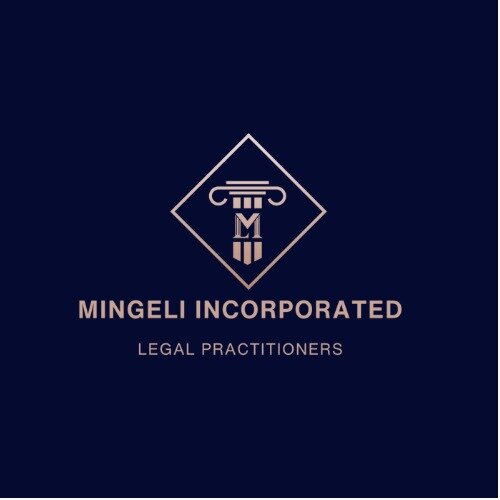Best Marriage Lawyers in Namibia
Share your needs with us, get contacted by law firms.
Free. Takes 2 min.
Free Guide to Hiring a Family Lawyer
Or refine your search by selecting a city:
List of the best lawyers in Namibia
About Marriage Law in Namibia
Marriage in Namibia is primarily governed by the Marriage Act 25 of 1961 and the Recognition of Certain Marriages Act 18 of 1991. While these laws provide the framework for marriage, they also require parties to comply with customary or civil procedures, depending on the type of marriage being entered into. Civil marriages are typically registered and recognized legally, whereas customary marriages, common among various ethnic groups, may necessitate additional recognition processes.
Why You May Need a Lawyer
There are several common situations where individuals might require legal help regarding marriages in Namibia:
- Marriage Registration: Assisting in navigating the complexities of registering either a civil or customary marriage.
- Marriage Contracts: Drafting prenuptial or antenuptial agreements to manage property and financial arrangements.
- Divorce Proceedings: Legal representation during divorce, covering issues such as asset division and child custody.
- Spousal Rights: Understanding your rights within the marriage concerning property, maintenance, and inheritance.
- Customary Marriages: Ensuring customary marriages are legally recognized, especially where multiple marriages are involved.
Local Laws Overview
Marriage law in Namibia encompasses several key legal aspects, such as:
- Types of Marriages: Namibia recognizes civil marriages, customary marriages, and to some extent, religious marriages. Each type has specific statutory requirements.
- Age Requirements: Individuals under the age of 18 require parental consent to marry.
- Property Regimes: Marriages can be in community of property or out of community of property, each affecting the division of assets differently.
- Customary Law: The Recognition of Certain Marriages Act facilitates the recognition and registration of customary marriages.
- Inheritance Laws: Inheritance matters can often be intertwined with marriage laws, particularly under customary law.
Frequently Asked Questions
What is the legal age for marriage in Namibia?
The legal age for marriage is 18. However, those under 18 can marry with parental consent.
Are customary marriages legally recognized in Namibia?
Yes, customary marriages are recognized if they meet the requirements outlined in the Recognition of Certain Marriages Act.
What is the difference between in community and out of community of property?
In community of property means all assets and debts are shared equally, whereas out of community of property allows spouses to maintain separate estates.
How can I change my marital property regime?
Changing the marital property regime typically requires a court application and consent from both spouses.
Is polygamy permitted in Namibia?
Polygamy is recognized under customary law but not under civil law.
What is required to register a customary marriage?
The Recognition of Certain Marriages Act requires registration, which often involves fulfilling customary procedures and providing specific documentation.
Do divorce proceedings differ between civil and customary marriages?
Yes, divorce processes can vary; legal advice is recommended to navigate these differences effectively.
Can foreign nationals get married in Namibia?
Yes, foreign nationals can marry in Namibia but must meet certain legal requirements, including obtaining a marriage license.
What are antenuptial contracts?
Antenuptial contracts are agreements entered before marriage, often specifying property and financial arrangements.
What happens to marriage-related property in the event of a spouse's death?
This depends on the marital property regime and applicable inheritance laws, which may differ under civil and customary laws.
Additional Resources
For further assistance and information on marriage in Namibia, you can reach out to the following resources:
- Namibia Legal Aid: Provides legal assistance for those who cannot afford a lawyer.
- Ministry of Home Affairs, Immigration, Safety, and Security: Responsible for marriage registrations.
- Legal Assistance Centre Namibia: Offers guidance and support on marital laws and rights.
- Community Based Organizations: Various NGOs may offer support and mediation services.
Next Steps
If you find yourself in need of legal assistance regarding marriage in Namibia, consider taking the following steps:
- Gather Documentation: Collect relevant documents such as marriage certificates, personal identification, and any existing agreements.
- Consult a Lawyer: Seek professional legal advice to understand your rights and obligations better.
- Contact Governmental Bodies: Reach out to relevant ministries or departments for assistance with registrations or legal queries.
- Explore Mediation: Consider mediation services if you prefer an alternative dispute resolution method.
- Stay Informed: Keep abreast of changes in legislation and legal options available to you.
Lawzana helps you find the best lawyers and law firms in Namibia through a curated and pre-screened list of qualified legal professionals. Our platform offers rankings and detailed profiles of attorneys and law firms, allowing you to compare based on practice areas, including Marriage, experience, and client feedback.
Each profile includes a description of the firm's areas of practice, client reviews, team members and partners, year of establishment, spoken languages, office locations, contact information, social media presence, and any published articles or resources. Most firms on our platform speak English and are experienced in both local and international legal matters.
Get a quote from top-rated law firms in Namibia — quickly, securely, and without unnecessary hassle.
Disclaimer:
The information provided on this page is for general informational purposes only and does not constitute legal advice. While we strive to ensure the accuracy and relevance of the content, legal information may change over time, and interpretations of the law can vary. You should always consult with a qualified legal professional for advice specific to your situation.
We disclaim all liability for actions taken or not taken based on the content of this page. If you believe any information is incorrect or outdated, please contact us, and we will review and update it where appropriate.
Browse marriage law firms by city in Namibia
Refine your search by selecting a city.
















